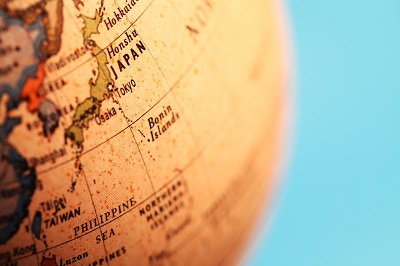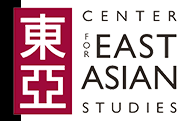A nation must think before it acts.

A Two-Week Immersion Experience in Japanese History, Politics, Foreign Relations, Economics, and Culture
June 21-July 5, 2018
Sponsored by
Foreign Policy Research Institute
Center for East Asian Studies, University of Pennsylvania
The deadline to apply for this study trip is March 1, 2018.
Click Here to Apply
FPRI and CEAS are excited to announce that we will once again be bringing 20 American educators to Japan for a two week immersion experience that will focus on three themes in Japan’s history and culture: Political and Social Stability, Maintaining Cultural Values While Seeking Change, and Cultural Borrowing.
Participants will be selected from across the United States and receive on-line training about Japanese Culture and the program’s themes before travelling to Japan. We will examine the ways in which Japan has achieved societal and cultural stability over a long period. This involved maintaining cultural values amid significant change and cultural borrowing.
Japan has been remarkably stable, both politically and socially, for most of the last seven decades. Since the end of World War II, Japan has been protected militarily by the United States, and as a result has focused its attention on domestic matters. In adopting a U.S.—designed constitution and making it Japanese over time, Japan has achieved a level of political stability that is the envy of much of the world, in spite of criticism at home. A restrictive immigration policy has contributed to Japan’s social stability, with less controversy than similar policies have generated more recently elsewhere.
Our study participants will also consider the status of the Ainu in Hokkaido and Korean-Japanese throughout the country. Japan’s history of seeking change, and borrowing from other cultures—including China, Korea, Germany, and the United States, will be explored as well. As modern a country as Japan is, understanding Japan still requires careful grounding in Japanese culture and tradition.
What You Get
- Two week study tour of Japan.
- $750 towards your roundtrip flight from the U.S. to Japan.
- Hotel accommodations.
- Most breakfasts, lunches, and dinners.
- Travel costs throughout Japan.
- Admissions to attractions.
- Educational materials, resources, and more.
- Free on-line course.
- Visitations of schools and institutions.
- Follow-up support from FPRI and CEAS, and more!
Who is Eligible
To be eligible you must be a social studies teacher or humanities teacher at a middle or high school, with intent to remain at the current school at least through 2019. You must be in good health appropriate for a strenuous 14-day study tour of Japan requiring EXTENSIVE (often measured in miles) walking/hiking and travel on public transportation with a rigorous daily schedule in some remote areas.
How to Apply
Please submit the Electronic Application Form, along with a resume, personal statement, and two letters of support by March 1, 2018. More information about these requirements can be found on the electronic application.
If you are accepted, you will need to secure your position for this tour with a $100 fully refundable deposit. Upon completion of your follow-up activities (lessons, course, workshop, club, or other approved activity), your deposit will be returned.
In addition, FPRI will provide you with a travel stipend of up to $750. You will be required to contribute the balance of flight costs to/from Japan (if any) after that.
During the trip, dress is business casual unless otherwise specified for a particular activity. The food provided in Japan is appropriate to Japanese culture. We will always try to accommodate vegetarians. Unfortunately, we may not be able to make special accommodations for vegan, Kosher, lactose intolerant, gluten intolerant, nut intolerant, etc., diets.
The Study Tour in Japan
We arrive and depart from Narita, and during the trip make good use of our Tokyo Railpasses (one week of the two- week tour), supplemented by additional train, bus, ferry, and taxi travel as needed. Accommodations will be modest and ideally will be evocative of each location. Most meals, sometimes with Japanese guests, will be included. These meals will offer opportunities to experience local cuisine and customs together.
The sites on the tour were chosen to exemplify important cultural, economic, and political locations in Japan, in keeping with the themes of this study tour. Tokyo will be the first and last stop of our tour. It is the political center of Japan and a critical economic and social center as well. Tokyo will afford us cultural, political, and economic sites. Planned visits will include many of the following: Ministry of Foreign Affairs, U.S. Embassy, Boeing Japan, Parliament, Emperor’s Palace, Ginza, Asakusa, Meiji Shrine.
After three days in Tokyo we will spend a week on Hokkaido, Japan’s major northern island. We hope to fly to Sapporo one way, and use ground/water transportation the other. In Sapporo, we intend to visit the following sites: locations in and around Sapporo city, Noboribetsu (hot springs), Lake Toya, Mt. Komagatake and Onuma Park (Koen), and locations in and around Hakodate.
In addition, we will use Saporro as a base to visit such sites as the Ainu Village Museum at Poroto Kotan near Otaru for the Ainu People. We hope to arrange side trips to Daisetsuzan National Park and the Furano fields, depending on available time and weather. These sites will provide an opportunity to see the natural side of Japan including onsen culture and the reverence for nature. Visiting the Ainu Village will provide deeper insights into Japanese attitudes to those outside the mainstream of modern Japan. Sapporo and Hakodate will provide a look at Japanese urban culture and society outside the more frequently visited Kanto Plain.
After leaving Hokkaido we will return to Tokyo. A visit to nearby Kamakura is also planned.
Interaction with Japanese citizens and school visits is an additional component of our study-tour. Our participants always enjoy interacting with the students.
Please remember, logistical constraints, timing beyond our control, and other factors can cause alterations or even cancellations of some sites included above.
After the Trip
As a requirement of acceptance, teachers are also expected to participate in transmitting their knowledge to other teachers through internal school meetings and at teaching conferences. This can be accomplished by developing lesson plans, holding educator workshops at their school, arranging special events engaging teachers and students, forming student clubs, and/or teaching new courses. All activities must be approved by FPRI Tour Director, Paul Dickler prior to acceptance.
Teachers will also be encouraged to present papers on their lessons at academic and pedagogical conferences. FPRI project staff will support them by inviting them to all events related to Japan, lending videos and materials, and sending faculty and graduate student lecturers to speak to their students.
CEAS and FPRI will post teacher lesson plans on our websites. Both FPRI and CEAS have new and improved websites to accommodate lessons and teacher resources.
A Word about the Sponsors
For more than 25 years, the Foreign Policy Research Institute, a Philadelphia-based think tank, has reached out to educators across the United States. Through its Wachman Center for Civic and International Literacy and Butcher History Institute, FPRI has managed 60 programs training educators in American and world history and international relations. To date, more than 1,000 teachers from over 800 schools in 47 states have participated.
Similarly, for over fifteen years, the University of Pennsylvania’s Center for East Asian Studies has partnered successfully with the US–Japan Foundation in the Phila-Nipponica Project to prepare educators in Philadelphia-area schools to convey knowledge and understanding of Japan to their students and colleagues.
Questions? E-mail Paul Dickler at pauldickler@yahoo.com
This project was made possible by a grants from the United States-Japan Foundation.





